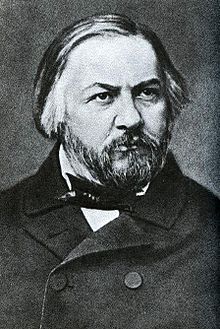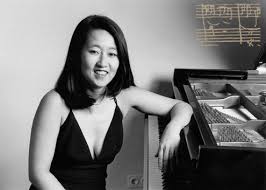Share This
Album at a Glance
Tags
Related Posts
- Francesco Cilea: Piano Trio; Cello Sonata / Cusano, Di Tonno, Codispoti
- German Wind Quintets; Eisler, Hindemeth, Klughardt, Stockhausen / Aquilon Quintet
- Heinrich Hofmann: Octet, Op. 80; Serenade, Op. 65; Sextett, Op. 25 / Berolina Ensemble
- Sergey Taneyev: String Quartets, Vol. 3 - Quartets nos 5 & 7 / Carpe Diem Quartet
Ignaz Lachner: Piano Trio No. 1; Gustav Jensen: Fantasiestucke, Op. 27; Mikhail Glinka: 3 Russian Songs
Posted by Paul Ballyk on Jan 4, 2014 in Romantic | 0 comments
Listening to only the starting measures of the Piano Trio Op. 37 by Ignaz Lachner on this Phil.harmonie CD, the elevated level of the performances is already evident. The disc contains two rare and lovely German Romantic-era piano trios by Ignaz Lachner (1807-1895) and Gustav Jensen (1843-1895), as well as a transcription for piano trio of three songs by Mikhail Glinka (1804-1857). The performers are violinist Rüdiger Liebermann and violist Walter Küssner - both members of the Berlin Philharmonic - and pianist Noriko Sugiyama, a regular chamber music partner of a number of BPO members and the orchestra's rehearsal pianist for over 15 years.
All of these works are scored for piano, violin and viola rather than the more common piano trio configuration with cello. The difference is subtle and often goes quite unnoticed, especially when the viola is placed in its lower register. When played in its upper register in duet with the violin playing at the bottom of its range, the two instruments can become rather homogeneous partners, each producing a timbre more similar to the other than in the combination of cello and violin.
The music from all three composers is written in a late-romantic vein and is very easy to enjoy. With playing that is full of felicitous musical touches, these three wonderful musicians make you quickly dismiss whatever shortcomings may exist in the works themselves. The playing is never self indulgent; the three artists play together with a genuine musical integrity that is gracious, self-effacing and thoroughly sympathetic of one another and to the music. The sample provided is the third movement Scherzo of the Trio No. 1, Op. 37 by Ignaz Lachner. The music is bold, tuneful and quite unforgettable as heard in these performances.
There is a weakness to this project, however. The English notes are among the worst I've ever encountered. They read as though the original German had been run through a translation utility and never actually read by someone who speaks English. This can be a little frustrating when you go to learn more about the music, but is not remotely a reason to bypass these marvelous performances.
From the booklet:
When do we refer to a family of musicians as a dynasty? The commitment to Bach as the beginning and end of all music does not exclude Handel as the solitaire and antipode, however, it admits no basic contradiction. But Johann Sebastian was not meant with "Bach" in all times. The Bach family was so numerous and so eminent that the idea of a generation-spanning "dynastic particularism" might be more appropriate. As to the organist family Lachner from Rain am Lech, the idea of a dynasty does not suggest itself neither with the father Anton nor the sons Franz, Ignaz and Vinzenz or the other siblings which played the organ. Nor are the composer brothers Adolf and Gustav Jensen from Konigsberg, one of them a pianist the other a violinist. The brothers Lachner and Jensen were respected musicians and teachers, they were neither reactionaries nor revolutionists, they occasionally changed their residence, they had a vivid imagination, but they respected the limits. Mikhail Glinka was born in the village of Novospasskoye near Smolensk; he is acknowledge as the "Father of Russian classial Music". ...continued
|
Ignaz Lachner, composer Ignaz Lachner was a German composer and conductor. Lachner was born into a musical family at Rain am Lech. He was the second of the three famous Lachner brothers. Lachner’s brothers Franz and Vinzenz were also composers. |
|
|
Gustav Jensen, composer Brother of pianist and composer Adolf Jensen. |
|
 Mikhail Glinka, composer |
Mikhail Glinka, composer Mikhail Ivanovich Glinka (1804 – 1857), was the first Russian composer to gain wide recognition within his own country, and is often regarded as the father of Russian classical music. Glinka’s compositions were an important influence on future Russian composers, notably the members of The Five, who took Glinka’s lead and produced a distinctive Russian style of music. |
|
Rüdiger Liebermann, violin Rüdiger Liebermann, scion of a musical family, began playing the piano at the age of five and was eight when he started violin lessons with Jacob Weinsheimer. His later teachers included Adolphe Mandeau, Saschko Gawriloff, Josef Gingold and Jascha Heifetz. |
|
|
Walter Küssner, viola |
Walter Küssner, viola Walter Küssner would really have liked to have learned the violoncello, but his brother already played it. Additionally, he was offered the opportunity to borrow a viola from his school, thus he decided for the more intense instrument. He received his professional music training from Jürgen Kussmaul in Düsseldorf, Kim Kashkashian in New York, and Michael Tree in St. Louis. |
 Noriko Sugiyama, piano |
Noriko Sugiyama, piano |
![]() About Paul Ballyk
About Paul Ballyk
all about Paul
Twitter •
| Thinking about purchasing this album?
Follow this link for more album details or to make the purchase. Buy it now |
“Not just recommended. Guaranteed.”
We stand behind every album featured on Expedition Audio. Our objective is to take the monetary risk out of music exploration. If you order this album from HBDirect.com and do not like it you can return it for a refund.





